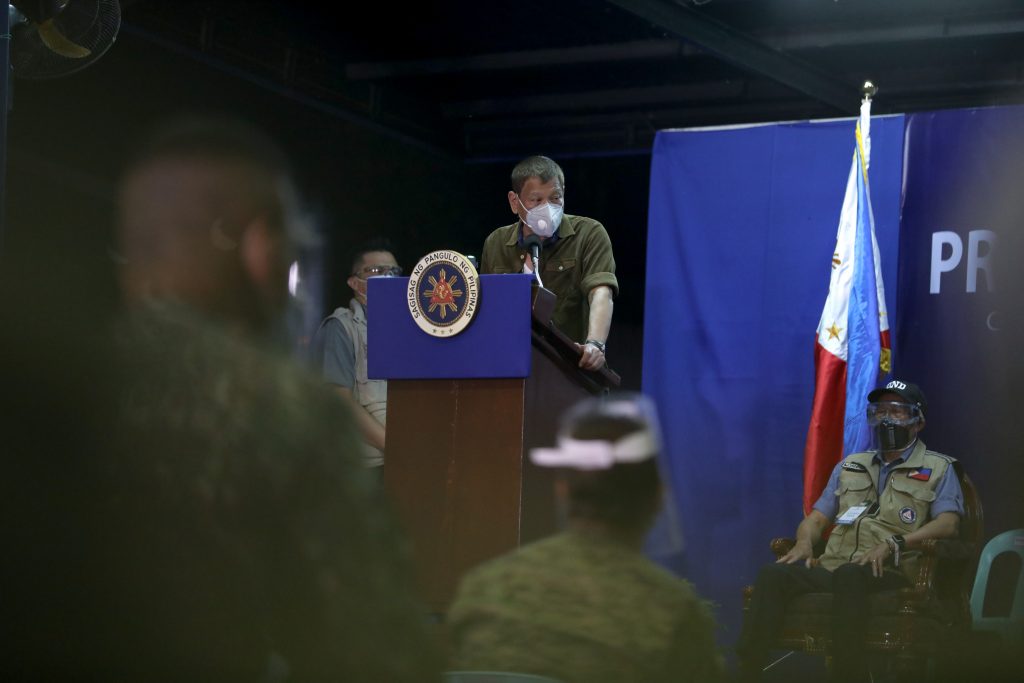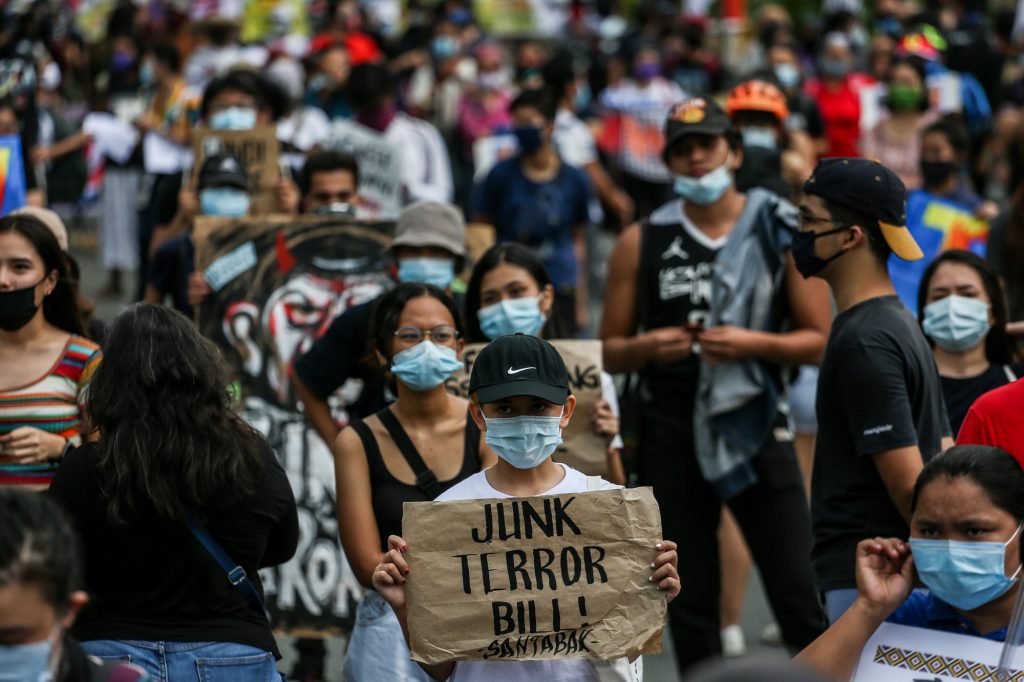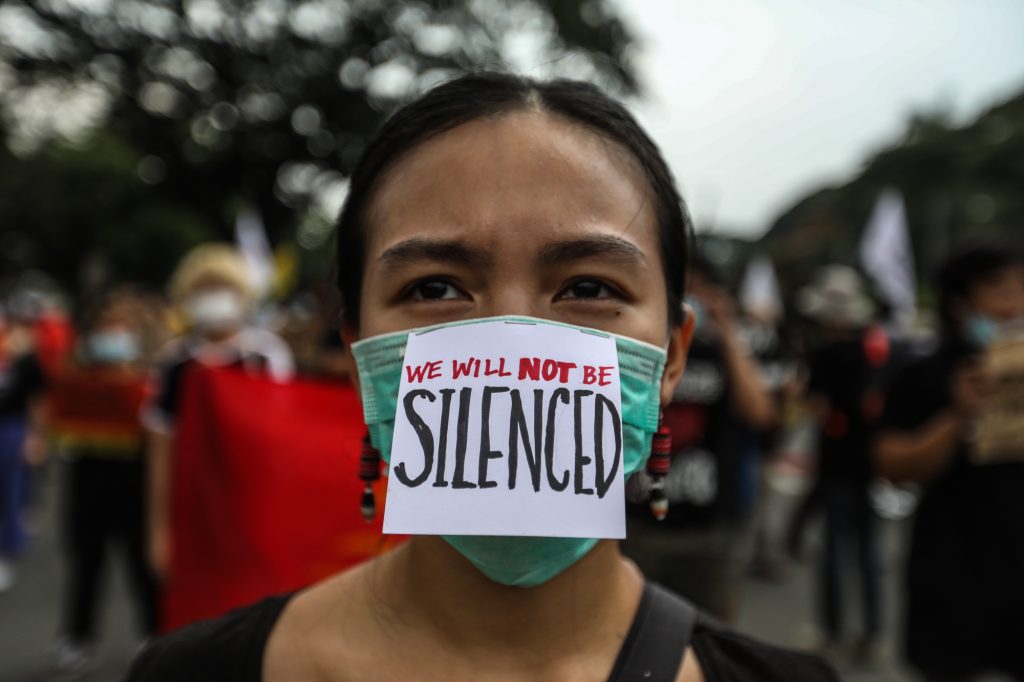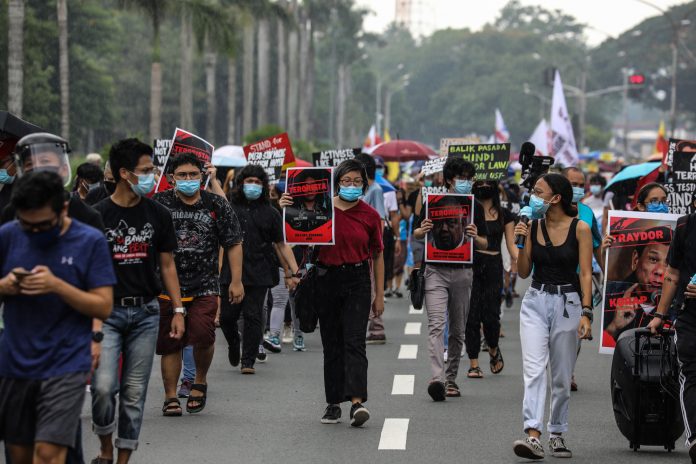Several church leaders and organizations decried Philippine President Rodrigo Duterte’s decision to sign into law the controversial anti-terrorism bill, calling it “morally wrong.”
Catholic bishops said that with the new law the country is “taking the wrong path” to peace. Protestant church leaders said the president’s decision was a “travesty against God’s will.”
President Duterte on Friday, July 3, signed into law the controversial Anti-Terrorism Act, which critics fear could be used to target human rights activists and government critics.
“The signing of the law demonstrates our serious commitment to stamp out terrorism,” said government spokesman Harry Roque.
The president’s communications’ office said in a Twitter post that the executive will “maintain the respect for human rights as we have ensured safeguards against abuse.”
Defense Secretary Delfin Lorenzana said the new law “is a much-needed measure to clothe law enforcement agencies with the necessary power to contain and eradicate terrorists who don’t play by any rules and who hide behind our laws to pursue their evil deeds.”
He appealed to the public “to give this law a chance and not to be swayed by misinformation and disinformation.”
“We assure the public that we will strictly implement this law according to its intent and spirit. We will ensure that it is not abused,” said Lorenzana in a statement on July 5.

Taking the wrong path
Archbishop Socrates Villegas of Lingayen-Dagupan said he and the clergy of his archdiocese “deeply regret” the decision of the president to sign the anti-terror bill into law.
“It is morally wrong, we humbly submit, to leave the terms of such powerful bill to the interpretation of the reckless and the power trippers,” said the prelate in a statement.
He said “violence can never undo violence” and the Church has long taught that “only the praxis of true Christian love has the power to break the cycle of violence.”
The former president of the country’s bishops’ conference said that the Church “decry terror” and “denounce terrorists.”
“Unlike our government, however, we do not wish to meet violence and blind rage with heightened violence and legitimated terror,” said Archbishop Villegas.
“We would rather as one, engage in the difficult but necessary task of building a culture that listens, that leaves none out, that accommodates differences,” he said.
He warned that “this same culture of inclusive listening will soon strip extremists of every reason to confine themselves to the margins of society.”

‘Travesty against God’s will’
The National Council of Churches in the Philippines also condemned the signing into law of the anti-terrorism bill, calling it “a travesty against God’s will.”
“It is a travesty against God’s will as it gives the government, or even just a few persons in the Anti-Terrorism Council, the absolute power that determines what course people’s lives will take by putting forward a very vague definition of terrorism,” read the church group’s statement.
The Protestant council said that “by playing God, the State commits the highest form of sacrilege.”
“It is an affront to God’s gift of human dignity and a threat to all people of goodwill,” read the council’s statement.
The Protestant group said President Duterte’s decision to sign the law also shows that he does not listen to the “legitimate cries of the people.”
The National Secretariat for Social Action of the Catholic bishops’ conference has earlier deplored the president’s “brazen disregard” of the public appeal to defer the signing of the proposed measure.
“The profound lack of consideration and sensitivity to the more pressing needs of the country by our government is appalling and utterly alarming,” read a statement from the organization.
“We will continue to be vigilant of the government’s actions, denounce any form of human rights violation, state repression, and impunity in cracking down on our democratic exercise,” it added.
Several church groups questioned the “broad” definition of terrorism in the law, warning it could be misused against critics of the government.
Human rights groups raised concerns over provisions allowing warrantless arrests and detentions and the wiretapping of suspected terrorists.
Bishop Ruperto Santos of Balanga said the new law “threatens” free speech, adding that it “will not give us peace, harmony, nor will unite us.”

‘Time for lamentations’
Father Danilo Pilario, who works in an urban poor community in the outskirts of Manila, said it is “time for lament” and for “the deepest prayer of an oppressed person in pain.”
“It is not the time for silence,” said the priest, adding that people must seek the help of God to protect the country from “tyranny and oppression.”
Bishop Arturo Bastes, retired prelate of Sorsogon, said he expected the bill to be signed into law.
“It is very disappointing, but how can we expect the president to veto the bill when he was the one who certified it as urgent and requested Congress to enact it,” he said.
Redemptorist priest Oliver Castor, spokesman of the Rural Missionaries of the Philippines, said people need to “seek redress through the courts to declare the law unconstitutional.”
The priest warned that the new law will justify “state-sponsored terrorism” against the legitimate grievances of the poor and the neglected in the society.
“Terrorism thrives where there is deep-seated discontent among those victimized by grave social injustice. This law will further deepen that wound of social inequality,” said Father Castor.
He said the law “has the potential to fan the flames of discontent on the state’s monumental failure to address prevailing unjust social structure.”
“This law is not only unconstitutional it is unjust and immoral,” he said.
Bishop Jose Elmer Mangalinao of Bayombong said the Catholic faithful should “pray and hope for the best” but “prepare for the worst.”
Oblates Father Jonathan Domingo, president of Notre Dame Midsayap College in Mindanao, said the signing of the proposed measure into law is “a done deal in uncertain times.”
He said the government should have focused more on urgent matters during the pandemic, especially on public safety and the impact of the disease on the poorest of the poor.
“Today is the beginning of a new wave of terror to be unleashed against critics, the poor, and exploited,” said Carmelite priest Christian Buenafe of the Task Force Detainees of the Philippines.
“Today we call on all Filipinos to resist evil with good,” he added.
The Anti-Terrorism Act of 2020 will take effect 15 days after its publication in the Official Gazette or in at least two newspapers of general circulation in the country.
Mark Saludes contributed to this report.









